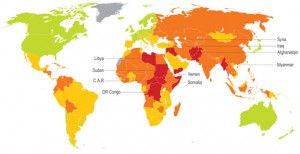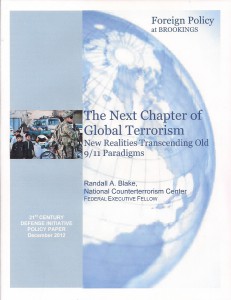Select bibliography of terrorism resources
Standard Note: SN/HA/5866
Last updated: 8 January 2013
Author: Diana Douse
Section: Home Affairs Section
A selective bibliography of terrorism resources. This includes reports on terrorism legislation by the Independent reviewer and government policy.
Alexander Horne is the library specialist on terrorism relating to the UK. Ben Smith is the library specialist on international terrorism.
This information is provided to Members of Parliament in support of their parliamentary duties and is not intended to address the specific circumstances of any particular individual. It should not be relied upon as being up to date; the law or policies may have changed since it was last updated; and it should not be relied upon as legal or professional advice or as a substitute for it. A suitably qualified professional should be consulted if specific advice or information is required.
PDF: 20130108 Select bibliography of terrorism resources. – Diana Douse
Contents Below the Line.
Continue reading “Reference: Select Bibliography of Terrorism Resources”





